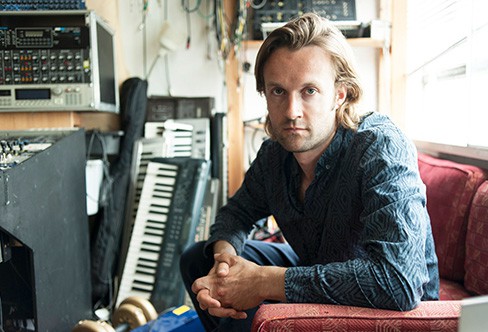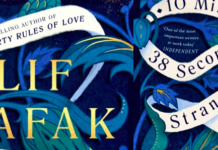A day on, Prokofiev was on stage again, but this time, in the flesh, at the hip Borusan Sanat. As I was to discover, music has lived on in the Prokofiev family. And grandson Gabriel Prokofiev is the Prokofiev of our times. He is an 80’s kid, who has studied – and is also doing fantastically well in – classical music and composition. Yet, he also has a diploma in Acoustics and Sound Engineering, and since the past decade, he has started a company and project called “Nonclassical.” It’s a fusion of classical music combined with electronics, a project in which he is known as “DJ Gabriel Prokofiev.” He is also a composer, with works that fuse classical instrumentation and composition with electronic equipment and sounds. His Concerto for Turntables and Orchestra, for example, has both sprinkles of classical magesticism and an avant-garde aura. And all of this is complimented with unprecedented spins on sound, acoustics, and replays sprinkled here and there into the composition. This, Gabriel Prokofiev does, in the persona of a DJ spinning records and generating electronic sounds in a DJ booth while a fully-pledged classical orchestra plays in the background.

At Borusan Sanat, he came on stage as a solo aritst, with his work “Multitracks Howl for Electronics and Live Cello.” Multitracks is a composition of twelve cello parts, layered a top each other. But on stage, there is only a single cellist. The rest of the cellos are personified in eleven decent-sized speakers seated in chairs… And each speaker takes on the role of a cellist, with Prokofiev in the background, in front of a computer, coordinating their parts. It’s a 12-minute, two movement piece, inspired by revolution of the people and the role of social media technology in mobilizing people through tweets, messages, and notifications of communication. And each of these comes with its own unique electronic sound.
The first movement is “Howl,” a low-toned series of download sounds about loneliness. It addresses loneliness, as described by Prokofiev. And it is not a loneliness of serenity. Low download sounds, depicting a manic and obsessive state of mind, an irritable and tense aura of loneliness culminating in self-destructive thunders and pulses. The second movement transitions into positive energy, with electronic signals, pizzicatos and buzzing sounds layered a top of each other, forming a composition of twelve cello tracks. The composition is one of intrigue, intense auras, and unprecedented synergy of electronics, technology and classical instruments.
Prokofiev says that he continues to compose traditional classical music as well. His “unclassical projects” continue in full momentum as well. One of his objectives is to have classical music reach new audiences and venues. His goal is to introduce the concept of classical music to people who normally approach it with only caution: the young, hip generation. His music is played in night clubs and discos, and sounds of cello and orchestras find their way into the ears and hearts of a brand new generation of people. Likewise, it brings groundbreaking alternatives for traditional, classical venues: the grand foyer of an opera house, for example, can be transformed into a giant disco bubbling with young people in a sold out performance of unclassical DJ’ing.
I think it also works the other way around. A traditional classical music enthusiast like myself who usually runs miles away at the mention of electronic music can be lured into an evening of electronic buzzes and unconventinal tracks promising to fuse classical with the unprecedented. Did I enjoy it? It is not something I would put on my music set and listen to all day. But, I am impressed with the concept of fusing classic sounds into new territory. I think it breathes a rejuvenating and invigorating life into the traditional form of music we have come to expect. It is ground-breaking and mind-opening. And that’s always welcome.
All images courtesy of Borusan Sanat.










